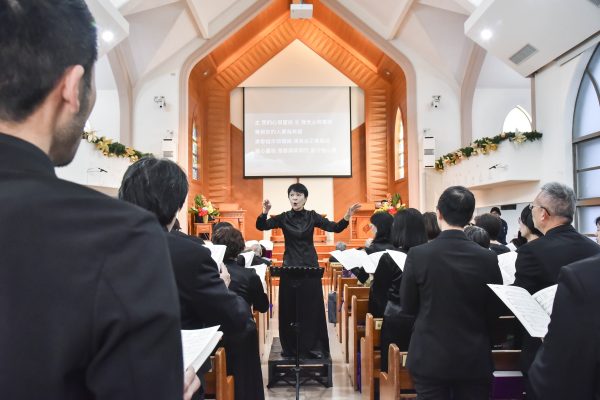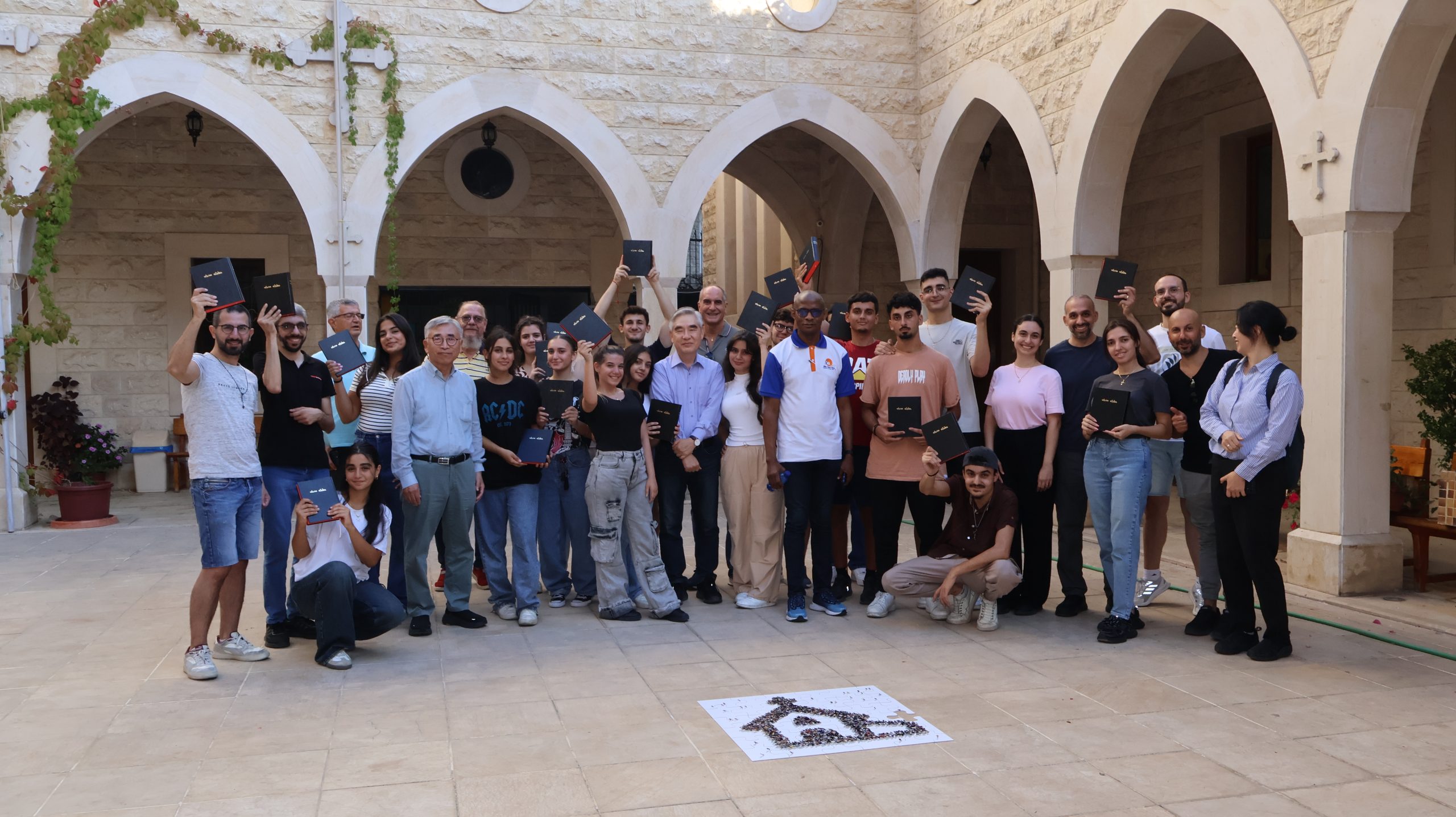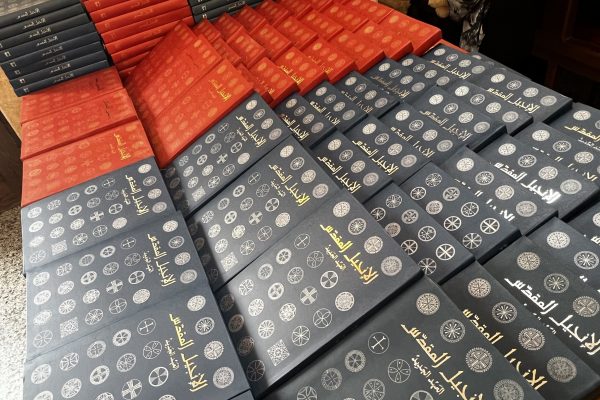
September 20, 2025
Article adapted from information provided by the Bible Society in Lebanon, available here.
 Marked through a week-long programme of worship, learning, and fellowship, the Bible Society in Lebanon (BSL) has celebrated the 75th anniversary of its official registration.
Marked through a week-long programme of worship, learning, and fellowship, the Bible Society in Lebanon (BSL) has celebrated the 75th anniversary of its official registration.
Since its registration on September 9, 1950, the Bible Society has been a beacon of Bible engagement in Lebanon and the wider Levant, faithfully translating and distributing God’s Word to generations in multiple languages and formats.
The celebratory week culminated in a Diamond Jubilee Celebration on September 9 at Saint Joseph University’s Pierre Abou Khater Theater in Beirut, Lebanon’s capital. Over 250 guests, including government officials, church leaders, partners, and international visitors attended the event which was also broadcast live on Télé Lumière/Noursat and covered by a local Lebanese Christian television outlet.
You can view a livestream of the event here.
 The evening included several musical performances, such as Syriac hymns, Lebanese heritage songs, and Handel’s Hallelujah Chorus, and closed with an address of gratitude for 75 years of service. The programme featured addresses from Father Salim Daccache SJ, Rector of Saint Joseph University, Bishop Georges Bacouni, Chairman of the Bible Society, Adrian White, representing the United Bible Societies, and Dr Mike Bassous, BSL General Secretary.
The evening included several musical performances, such as Syriac hymns, Lebanese heritage songs, and Handel’s Hallelujah Chorus, and closed with an address of gratitude for 75 years of service. The programme featured addresses from Father Salim Daccache SJ, Rector of Saint Joseph University, Bishop Georges Bacouni, Chairman of the Bible Society, Adrian White, representing the United Bible Societies, and Dr Mike Bassous, BSL General Secretary.
The event was held under the patronage of His Excellency, the President of the Republic of Lebanon, General Joseph Aoun, represented by Deputy Prime Minister Dr. Tarek Mitri – who also provided the event keynote address. Minister Mitri shared the President’s good wishes on this occasion, and honoured the Bible Society’s contribution to Lebanon, the region, and the wider Church.
Armenian Study New Testament Launch
Several other special events occurred in the week leading up to this Diamond Jubilee event. A highlight among these was the launch of the first-ever Armenian Study New Testament, a project more than a decade in the making.
Developed under the supervision of Archbishop Oshagan Choloyan, translated by Rev. Fr. Sarkis Aprahamian, and coordinated by BSL Publishing Manager, Ani Baboglanian, this edition offers Armenian-speaking Christians the biblical text in addition to pastoral and theological insights. At the launch event, His Holiness Catholicos Aram I Keshishian reminded guests:
“It is not enough to publish or distribute Bibles, or even to read them. What matters is the biblical values that lead to life change. The Bible is not just information or history, it is guidance for our life.”
Celebrating a Legacy of Mission
From its earliest days, BSL has been deeply embedded in the life of the Church. The Bible Society can trace its ministry history to 1820, when missionaries started their Bible distribution mission in the region with available portions in the vernacular languages. In 1932, the mission was handed to a visionary indigenous leader, Fouad Accad, who served the region for more than 40 years.
Through 75 years of official registration, BSL has facilitated Bible translation, publication, and distribution in Arabic and other vernacular languages, developing innovative formats to make the Bible accessible and meaningful to children, young people, and adults alike. The anniversary week highlighted this heritage with tours, Bible engagement events, and shared meals with colleagues from sister Bible Societies—demonstrating the power of friendship across borders within the global UBS Fellowship.

Lebanon’s Apostolic Roots
 During the week-long celebrations, participants retraced Lebanon’s rich Christian heritage through a “Rally Paper” tour, visiting sites linked with the apostolic era—such as Tabarja Bay (associated with St Paul), St John Mark Church in Byblos, and St Stephan Church in Batroun. Guests also experienced worship in both the Greek-Catholic and Maronite traditions, a powerful reminder of the ecumenical unity that has shaped the Bible Society’s ministry.
During the week-long celebrations, participants retraced Lebanon’s rich Christian heritage through a “Rally Paper” tour, visiting sites linked with the apostolic era—such as Tabarja Bay (associated with St Paul), St John Mark Church in Byblos, and St Stephan Church in Batroun. Guests also experienced worship in both the Greek-Catholic and Maronite traditions, a powerful reminder of the ecumenical unity that has shaped the Bible Society’s ministry.
Life and Faith in Lebanon
 Lebanon is a land of profound faith, deep history, and present hardship. On the one hand, its religious landscape is remarkably diverse: Muslims, of all sects, comprise a majority (roughly 60-70%), while Christians of various faith traditions comprise approximately 30-40% of the population. Religion is woven into national identity, law, culture, and politics.
Lebanon is a land of profound faith, deep history, and present hardship. On the one hand, its religious landscape is remarkably diverse: Muslims, of all sects, comprise a majority (roughly 60-70%), while Christians of various faith traditions comprise approximately 30-40% of the population. Religion is woven into national identity, law, culture, and politics.
But daily life in Lebanon today is marked by sharp economic crisis, political instability, and social strain. Many Lebanese live in poverty; inflation has skyrocketed; electricity shortages and public service breakdowns are frequent. Despite this, faith remains a vital wellspring of hope. Churches and religious institutions are not only places of worship, but also important centres of community support—they offer aid, comfort, refuge, and solidarity. In that way, the people of Lebanon are living testimonies to perseverance: faith not merely surviving but acting in love and service amidst suffering.














